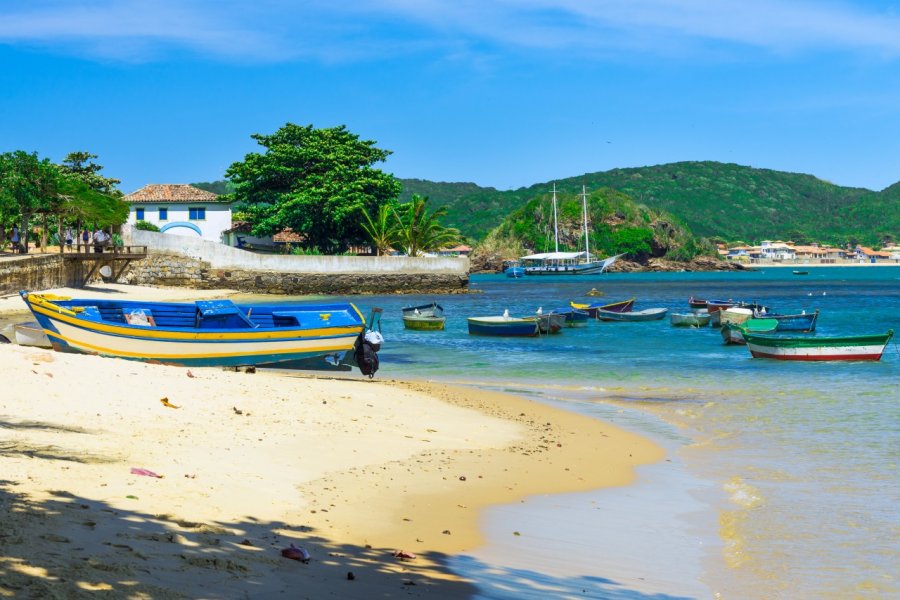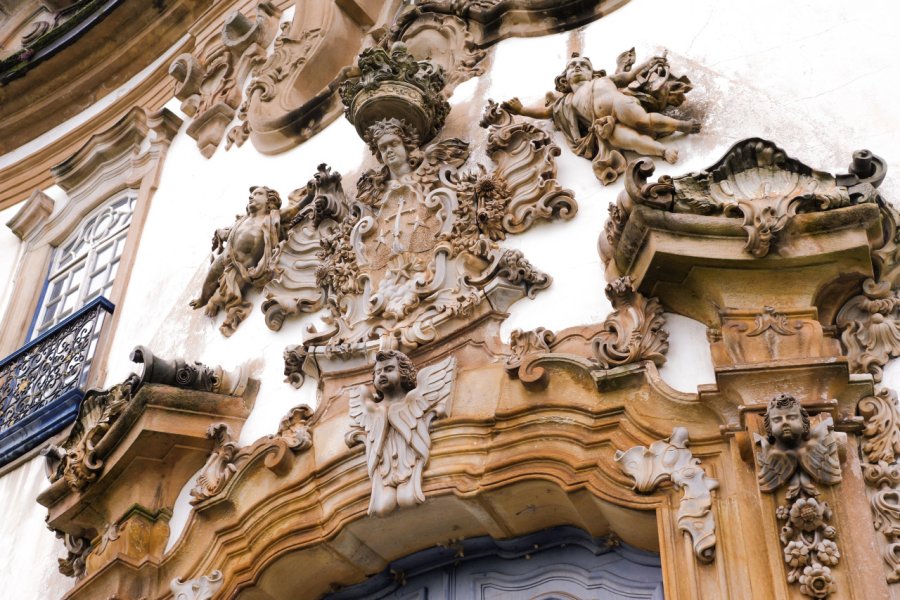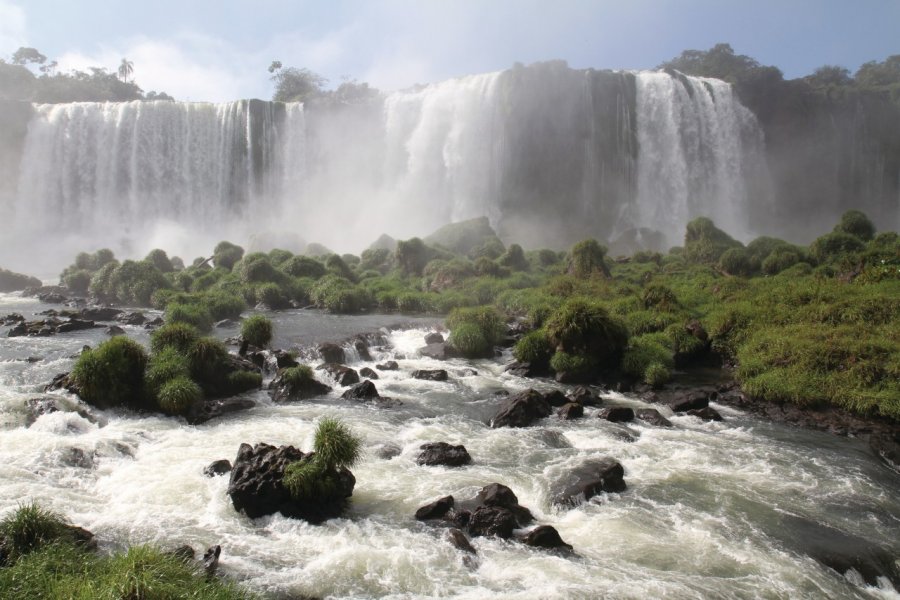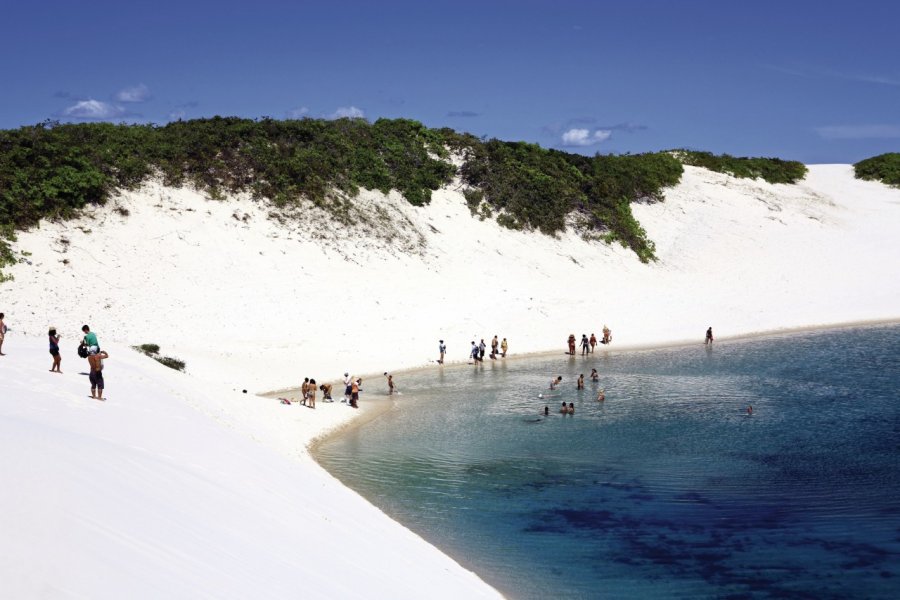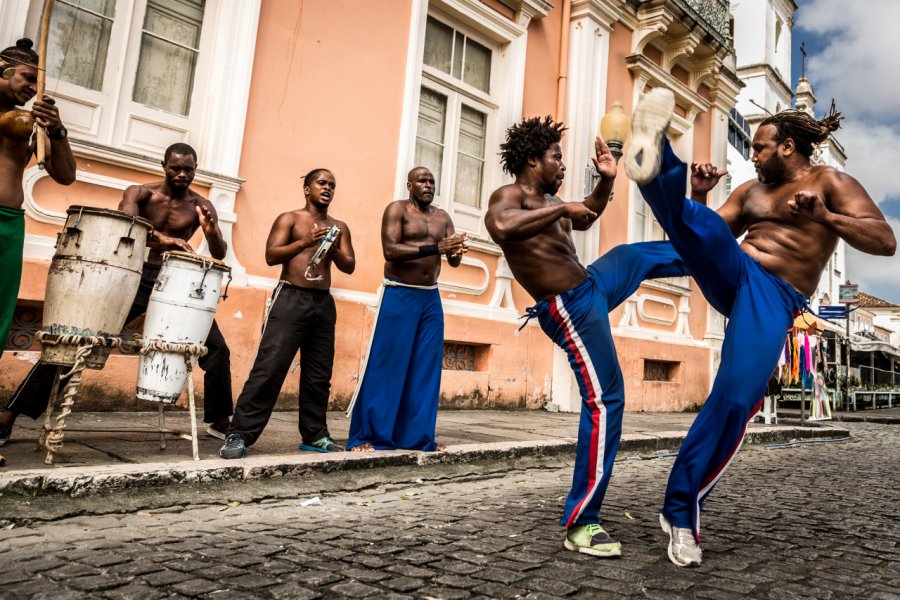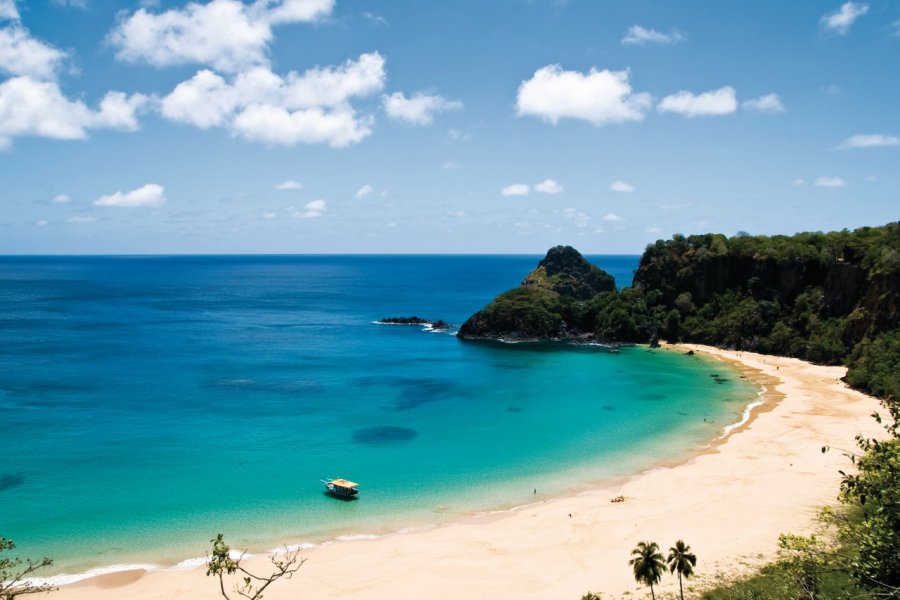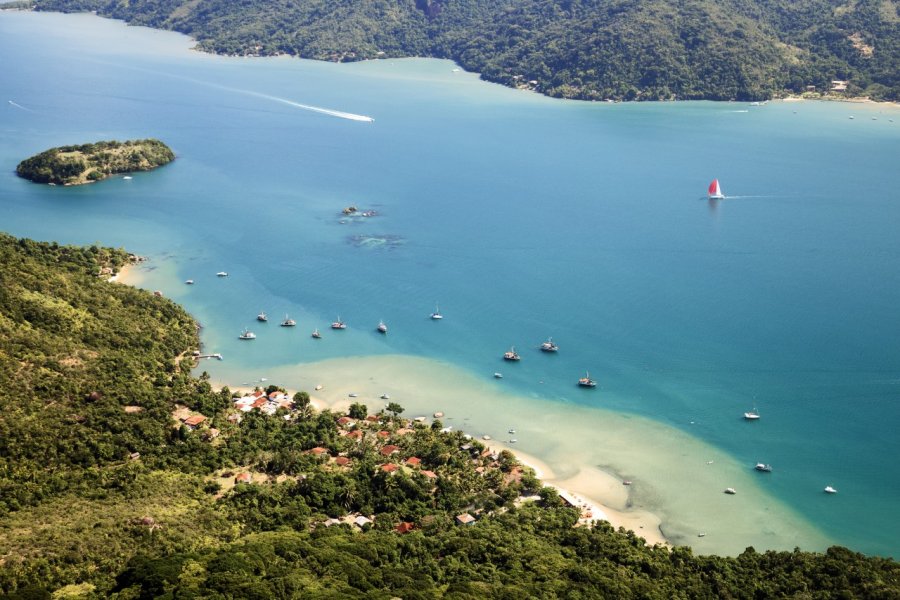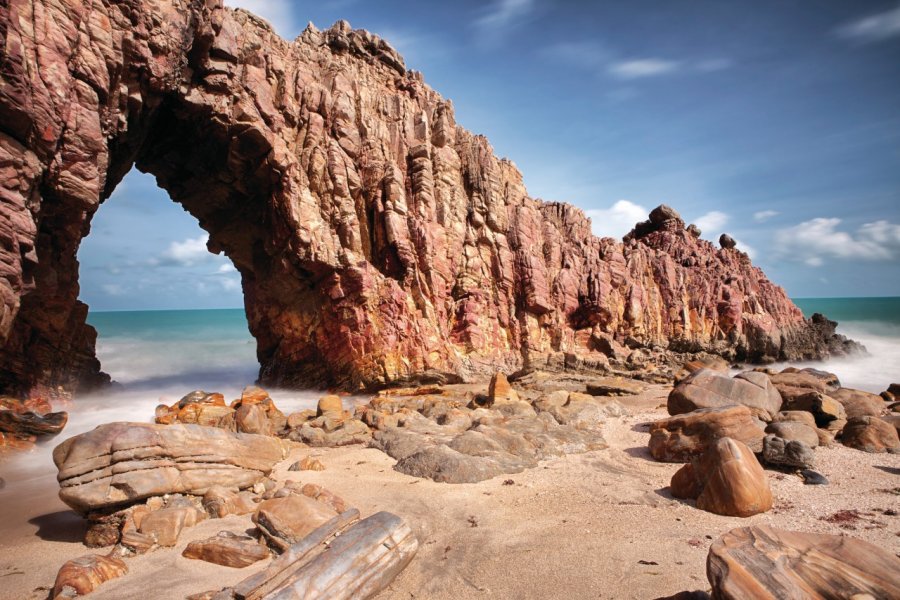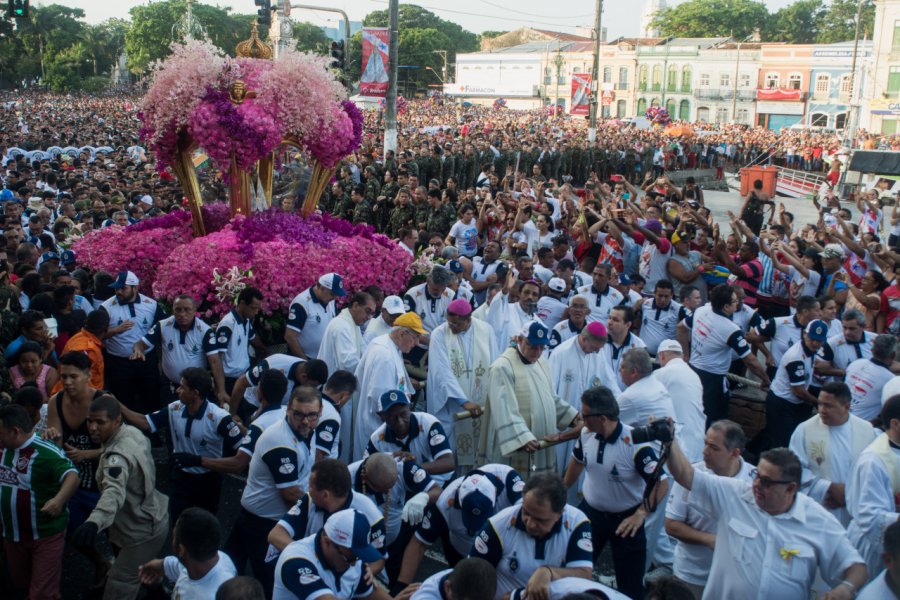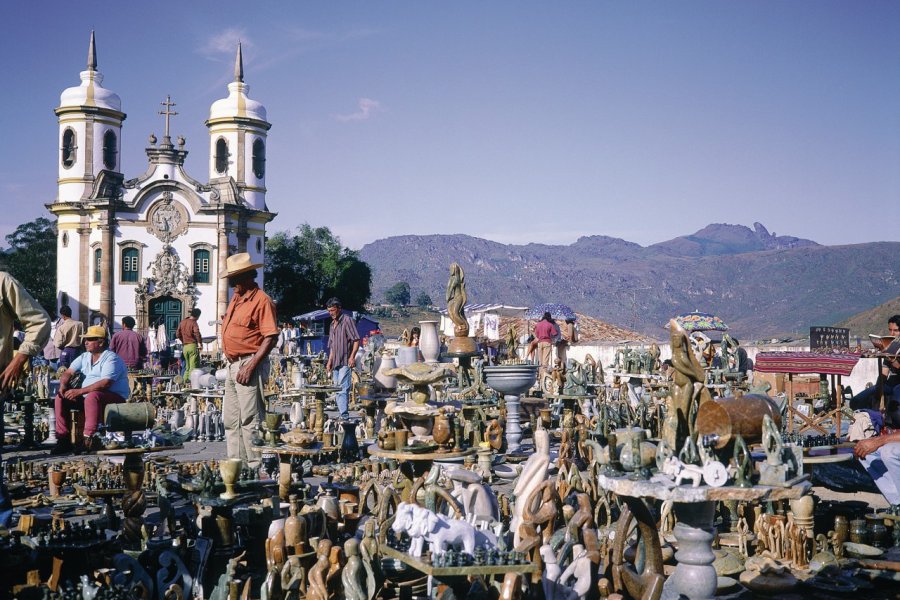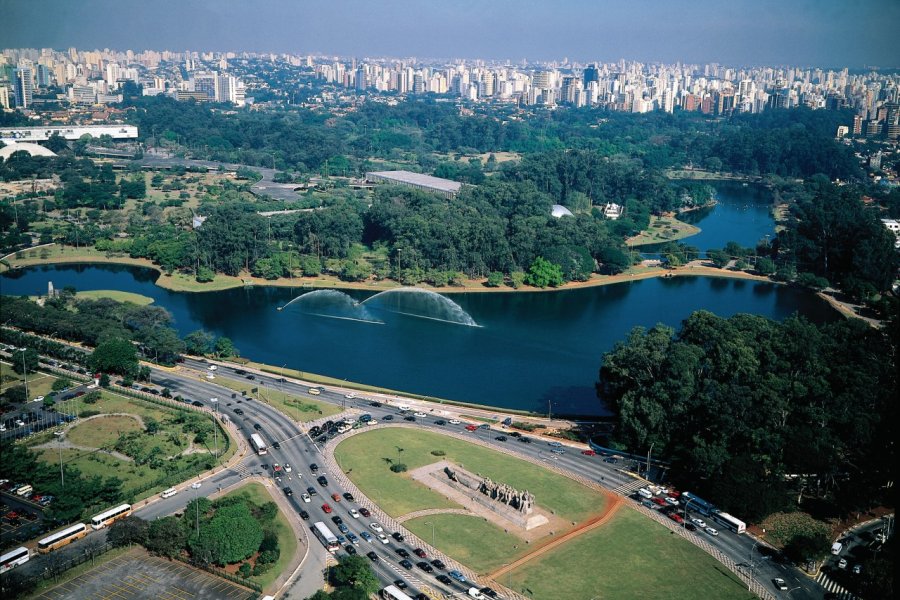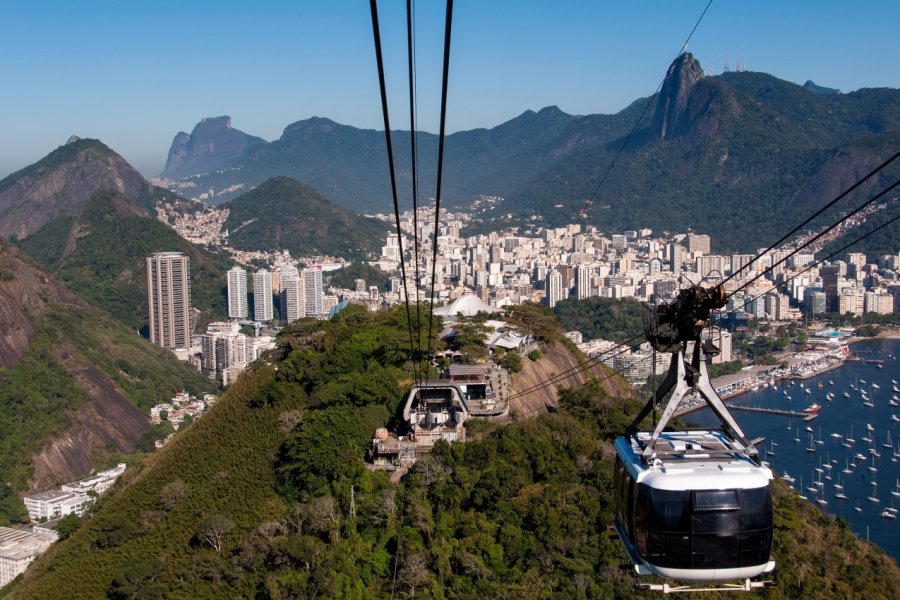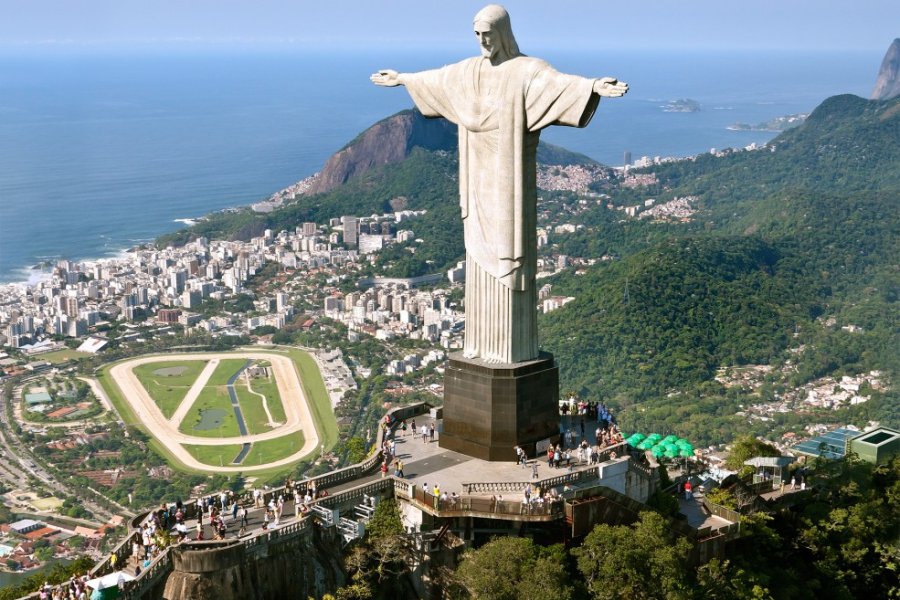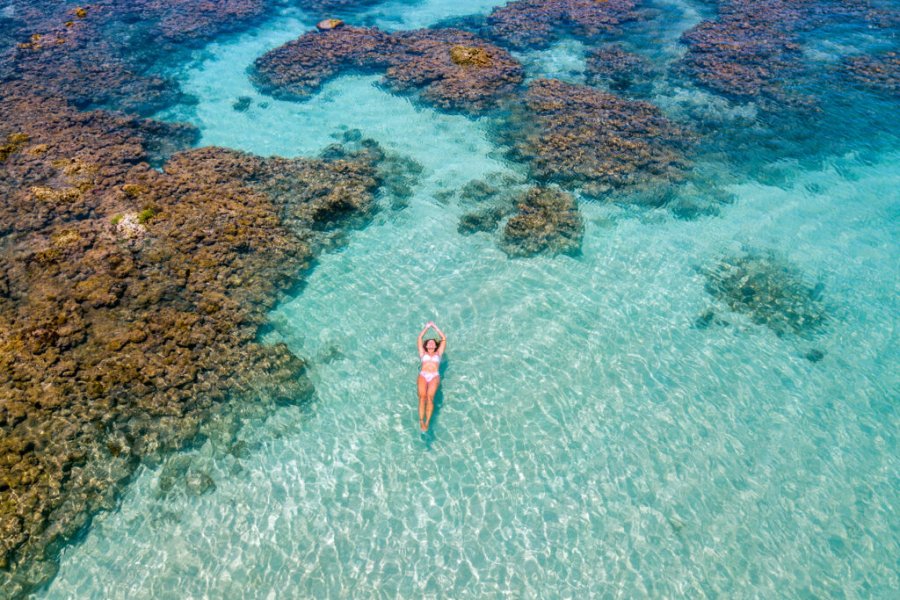Why go to Brazil? The 10 good reasons to go Brazil

A variety of sports activities
Football, surfing, volleyball, rafting, hiking, climbing, paragliding... Everything is possible.

The land of Baroque art
The colonial cities and the baroque churches seem to have frozen in time.

Discovering diversity
Brazil is a rich country, with an immense cultural and geographical diversity.

An incredible biodiversity
Brazil is the largest reservoir of biodiversity on the planet.

A grandiose nature
Nature takes on an incomparable dimension in Brazil.

The land of carnival
Carnival and religious festivities attract millions of participants.

The land of beaches
Brazil offers some of the most beautiful coastlines on the planet.

A rich gastronomy
The multiculturalism of the country is transcribed in a great gastronomic wealth.

The divine cachaça
Cachaça and caipirinha will appeal to gourmets and party-goers alike.

The praise of modernity
For over a century, Brazilian urbanism has been in the vanguard.
What to visit Brazil?

Interview: My Brazil
By Hervé Foissotte, author of the guide
Hervé Foissotte has been travelling around Brazil since a first study trip in 1991. He has been a regular contributor to the Petit Futé Brazil guide since 2006. In addition to the "classics", he reveals in his good tips some aspects of a more confidential Brazil, off the beaten track, with an emphasis on small local businesses committed to sustainable development.
See the video of the interviewGood to know to visit Brazil
 Timetable
Timetable
The most common store opening hours are from 8am to 9pm, sometimes with a break from 12pm to 2pm. Some stores, particularly food stores, are open 24 hours a day, even on Sundays.
Museums are open Tuesday to Sunday from 8 or 9am to 5 or 6pm. However, this is only a very general indication, as opening times vary greatly depending on the season, the city... or the museum. The Sugarloaf Park in Rio is open from Thursday to Monday, from 10am to 7pm. During the high season (school vacations in December, for example), tourist areas, museums and monuments are very busy.
Downtown areas in general, including those of Rio and São Paulo, or the lower town of Salvador, should be avoided in the evening and from Saturday afternoon onwards. They are dangerous and not very busy.
 To be booked
To be booked
Some venues and events are subject to strict visitor limits. Reservations are strongly recommended. Throughout the guide, these particular events will be described in greater detail. For the most emblematic event, Carnival (whatever the city, Rio, Salvador or Olinda), plane tickets and hotels, of course, but also tickets for the sambodrome in Rio or participation in Carnival must be booked well in advance (at least six months, sometimes a year!). Reservations for boat tours of the Iguaçu Falls or for soccer derbies (Flamengo-Fluminense in Rio de Janeiro, for example) are also highly recommended. Easter celebrations in Ouro Preto are also very popular with Brazilians; hotels are fully booked, so either book in advance or avoid Ouro Preto for a few days.
 Budget & Tips
Budget & Tips
In monuments, public transport and museums, admission is free for people over 65 (60 in some states) and children under 5. One of the biggest expenses is often the price of a plane ticket or tickets to see as much of the country as possible. For those who want to cross this vast country in a short space of time, while neglecting their carbon footprint, the "Brazil Air Pass" is a good alternative. Of course, we recommend bus travel, but inter-city distances are sometimes so great that air travel is the last resort. The Azul and Gol airlines offer passes at US$ 399 and US$ 505 respectively for 4 coupons. As soon as you have your ticket for Brazil, you need to take them from France or the countries from which you are departing.
 Main events
Main events
Brazil can be visited all year round. Major events are spread throughout the year.
In January , the Bonfim washing ceremony is one of Bahia's most important religious and popular festivals. Around 200 Bahian women wash the stairs of the Bonfim church in homage to the Oxalà deity.
In February, and sometimes March, carnival madness takes over the whole country. The best-known carnivals are those of Rio de Janeiro, Salvador de Bahia and Olinda, the latter perhaps being the most authentic.
At Easter , in April, the streets of Ouro Preto are decked out in flowerbeds trodden by brotherhoods of penitents.
In May, São Paulo's "virada cultural" celebrates culture and music, bringing Brazilian singers to millions of spectators.
In June, the "juninas" parties rock Brazilian and North-Eastern nights, especially in Campina Grande and Caruaru, immortalized by singer Luiz Gonzaga. The "quadrille" is danced in a colorful atmosphere.
In November, FLIP, the Paraty International Book Festival, honors books in all their forms and a different Brazilian author each year.
In October, month of the oktoberfest of course, Blumenau, in the state of Santa Catarina, rivals the Munich festivities to the sound of oumpapa musick.
In December, the festival of the Three Wise Men is one of the highlights of Brazilian folklore. Present in many of the country's cities, the most spectacular is undoubtedly that of Muqui, in the state of Esperito Santo.
 Guided tours
Guided tours
Going through a tourist office or guide bureau is always a good idea when you want to benefit from the services of a guide, whether you're on your own or in a group. It's the guarantee of being taken care of by an accredited, trained and competent guide. This generally avoids tourist-grabbing scams. Today, many tourism organizations offer tailor-made tours, adapted to travelers' needs, far removed from mass tourism and allowing them to meet Brazilian people and nature. French organizations such as ARVEL-Voyages offer organized tours in small groups, with scope for travellers who don't necessarily want to follow the group all the time. For "nature" tours in the Chapadas, Pantanal or Amazon, this is often the guarantee of a safe and successful experience.
 Smokers
Smokers
As in France, Brazilian legislation prohibits smoking in public places and on public transport. The sale of cigarettes to minors is prohibited.
 Tourist traps
Tourist traps
To be sure of the quality of the guides, you must systematically go through the "real" local guide offices. They guarantee the guides' accreditation, which is itself linked to high-quality training. Serious pousadas generally offer guides they know and trust. Avoid touts in public places, such as bus stations or Pantanal airports.
